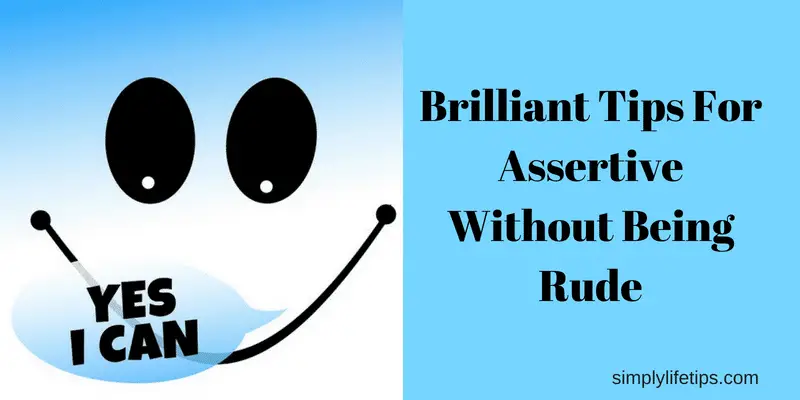An assertive person strikes a balance between passivity and aggression, effectively navigating various situations. Assertiveness is a valuable communication skill that empowers individuals to express their needs, opinions, and boundaries confidently while respecting the rights of others. This article will define assertiveness, provide insights into what it means to be an assertive person, and offer practical tips on how to be assertive in any situation without coming across as rude.
Who is an assertive person?
An assertive person is someone who communicates their thoughts, feelings, and needs with confidence and clarity. They can stand up for themselves, set boundaries, and express their opinions in a way that is both respectful and effective. You have the ability to establish boundaries, either through spoken words or your actions, to communicate what you are willing to accept and what you will not tolerate.
Key traits of an assertive individual include:
- Self-assuredness: They are confident in themselves and their abilities.
- Respect for others: They consider the feelings and rights of others, fostering healthy relationships.
- Open communication: They express themselves honestly and directly, avoiding passive or aggressive behaviours.
- Problem-solving skills: They seek solutions rather than dwelling on problems.
“I’ve worked very hard at understanding myself, learning to be assertive. I’m past the point where I worry about people liking me.”
Pam Dawber
What Is Assertiveness?
Assertiveness represents a fundamental communication skill, serving as a constructive approach to handling challenging individuals. This skill empowers you to express yourself effectively, assert your viewpoints, attain goals, and resolve problems, all while maintaining respect for the rights and beliefs of others.
How To Be Assertive In Any Situation
Exercising assertiveness in any scenario is essential for maximizing one’s life experiences. This can be a daunting task, particularly if you hold certain beliefs, such as:
- “Practicing assertiveness in any situation leads to numerous conflicts.”
- “Being assertive in any situation diminishes your likability.”
- “Assertiveness is synonymous with being unkind.”
Various beliefs may influence your approach.
Know Your Rights
Understand that you have the right to your own thoughts, feelings, and opinions. Recognize that your needs and boundaries are valid. Recognizing your own rights and boundaries is the foundational step in assertiveness. This self-awareness helps you feel more justified in advocating for yourself.
Active Listening
Actively listening is an integral aspect of assertiveness. When you pay full attention to what others are saying, it not only shows respect for their perspective but also enables you to gather important information and respond effectively. It helps to build rapport and understanding.
Use “I” Statements
“I” statements allow you to express your feelings and needs in a non-confrontational manner. They shift the focus from blaming or criticizing others to explaining your personal experiences. For example, saying, “I feel overwhelmed when this happens” is less accusatory than “You always overwhelm me.”
Stay Calm And Collected
Maintaining composure is crucial when practicing assertiveness. It’s easy to become emotional in difficult situations, but taking a deep breath and staying composed helps you respond rationally rather than reacting impulsively. This composure lends credibility to your communication.
Practice Empathy
Empathy plays a vital role in assertive communication. Recognizing and acknowledging the feelings and needs of others demonstrates that you respect their perspective. This, in turn, promotes open and constructive dialogue.
Be Clear And Specific
Express yourself with clarity and specificity, avoiding vague language. Clearly state your thoughts and needs, leaving little room for misinterpretation. Clarity in your communication is essential. Vague language can lead to misunderstandings. When you express yourself clearly and specifically, you leave less room for misinterpretation, making it easier for others to understand your point of view.
Use Nonverbal Cues
Pay attention to your body language, tone, and gestures. Your nonverbal communication, including body language, tone, and gestures, can reinforce your assertiveness. Maintaining eye contact, standing or sitting up straight, and using a confident tone of voice can all contribute to conveying your message effectively.
Learn To Say No
Saying “no” when necessary is a crucial aspect of assertiveness. It’s okay to decline requests or set boundaries politely. Assertiveness means setting boundaries and sometimes saying “no.” It’s crucial to understand that you can’t agree to everything. Learning to say “no” respectfully is a key aspect of maintaining your well-being and managing your commitments effectively.
Practice And Seek Feedback
Assertiveness is a skill that can be developed through practice. It’s important to apply it in various situations, seeking feedback from trusted friends, family, or mentors. Constructive feedback can help refine your approach.
Consider The Timing
Choosing the right time and place for assertive communication is important. Avoid discussing important matters when emotions are running high, as this can lead to counterproductive interactions. Select moments when all parties are more receptive.
Respond, Don’t React
Responding thoughtfully, rather than reacting emotionally, is a key principle of assertiveness. Taking time to think and craft your response can prevent impulsive and potentially rude reactions.
Be Open To Compromise
Being assertive doesn’t mean you always get your way. It’s important to be open to compromise and collaborative problem-solving. This flexibility can help maintain healthy relationships and reach mutually beneficial solutions.
Embracing assertiveness
Embracing assertiveness in various life situations is essential for unlocking one’s full potential. The journey toward assertiveness may pose challenges, especially when certain beliefs are held, such as the notions that “assertiveness inevitably leads to conflict,” “being assertive reduces likability,” and “assertiveness conflicts with kindness.”
It is crucial to differentiate between assertiveness and aggression, recognizing the distinction. While the pursuit of harmony and likeability is admirable, there are moments in life when assertiveness becomes a necessity. Failing to assert oneself in these instances can result in substantial costs, including missed opportunities for personal growth, strained relationships, and ultimately, a diminished sense of well-being.
- 10 Realisations About Life: A Guide To Finding Inner Peace
- Why Is Self-Discovery Important? What Are the Benefits?
Final Thoughts
Being assertive is an essential skill for effective communication and maintaining healthy relationships. By understanding what it means to be an assertive person and following these practical tips, you can confidently express your thoughts, feelings, and needs in any situation without resorting to rudeness. It helps you stand up for yourself while fostering respectful interactions with others.
Are you an assertive person?
I appreciate your visit. I trust you found the post enjoyable.
Remember, Sharing Is Caring! Feel free to share this post on your social media and other networks to help others discover it.
PVM

Mathukutty P. V. is the founder of Simply Life Tips. He is a Blogger, Content Writer, Influencer, and YouTuber. He is passionate about learning new skills. He is the Director of PokketCFO.
He lives with the notion of “SIMPLE LIVING, CREATIVE THINKING”. He Believes – “Sharing is caring.” and “Learning never ends.”



